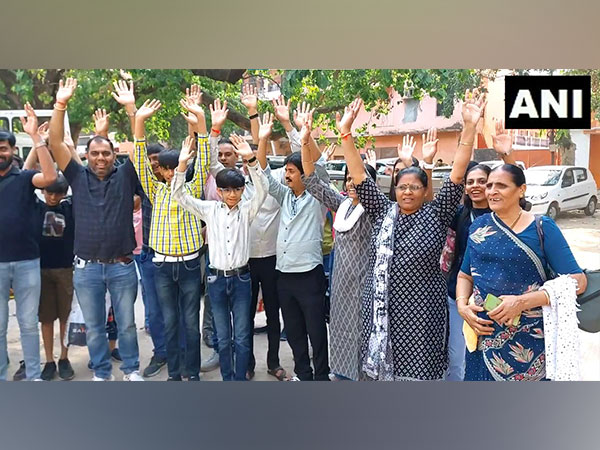Freebies used for political agenda should be banned, opines renowned economist
Aug 30, 2022

New Delhi [India], August 30 : Amid the row over pre-election goodies and freebies, renowned economist and Member of the Economic Advisory Council to the government of India, Sanjeev Sanyal, opined that freebies that are populist in nature and used for inciting one's political growth shall be banned.
"It is very important and I think that the populist type of freebies which are for political reasons should be banned in the country. This message is from the level of the Prime Minister. We should use the resources we have wisely," Sanjeev Sanyal told ANI.
He also highlighted that the financial resources available in every economy are very limited.
"Whether it is central government, state or local, they have limited sources or revenue. They keep several things in mind which are important to them while spending the money. But If you are spending on one thing, it means that you are not spending on something else," he added.
Talking about the fresh fall of the rupee against the dollar, Sanyal said, "The weakness of the rupee should be seen in the international context. The exchange rate of the Indian rupee with the dollar is an international context where the dollar is going up against every currency. In that context, if we keep the Indian rupee with the dollar and say that we will target this level, then the rupee will appreciate against all other currencies in the world. I think foreign exchange should be used for volatility control. This is what RBI is doing and which is right."
Stressing on inflation, Sanyal said that RBI is cautious about inflation.
"We are doing whatever we can on behalf of the government. The impact of inflation is not due to crude oil. We have no control over that. We will try to do as much as we can control. RBI is keeping interest rates and liquidity under control. RBI is trying its best to control Inflation," he added.
Earlier on Friday, Union Finance Minister Nirmala Sitharaman said that political parties making promises prior to elections should make budgetary provisions to take care of expenses and avoid burdening other entities.
Speaking at an event, Sitharaman said, "It is an important issue that India should debate and all of us have to join the conversation (on freebies). The first thing is all of us do recognise that there is an issue. Our government is very conscious of what constitutes freebies. It is one thing to empower people and ensure to provide all kinds of assistance so that they come up out of that mire and be able to do their own afterwards."
She said due to an absence of budgetary provision for free electricity, no payments are being made at the time or even no payments are being made at all.
"You end up shifting the burden to the DISCOM which is not gone to the elections. The DISCOMs have not asked for the votes. But they are being burdened by it. Why should they? Do they have the power to stop continuing the supply? And similarly the GenCos. If you made a promise, make a provision and let the Assembly or Parliament pass it. It cannot just be I have made the promise, I come to power but God knows who is going to pay," stated the Minister.
Sitharaman's remarks came against the backdrop when the Bharatiya Janata Party (BJP) and Opposition parties especially Aam Aadmi Party (AAP) have locked horns over the issue of freebies.
Meanwhile, the Supreme Court on Friday referred the freebies case to a three-judge bench while saying that the issue of freebies promised by the political parties during election campaigns requires extensive debate.
The top court's order came on a batch of pleas against freebies promised by political parties.
Earlier, the top court had asked the Centre why it cannot call for an all-party meeting to determine issues relating to the promise of freebies during election campaigns.
While acknowledging the complex nature of the issue, CJI Ramana had said that the intention of the court was to initiate a wider public debate on the issue, and it is for that purpose the constitution of an expert body was mooted.
During the previous hearing, the apex court said that the issue concerning freebies is complex and there is a need to draw a distinction between welfare schemes and other promises that are made by political parties before elections.
Political parties like Aam Aadmi Party, Congress and Dravida Munnetra Kazhagam (DMK) have sought to intervene in the matter and opposed the plea.
AAP had filed an application stating that electoral promises such as free water, free electricity, and free transport are not 'freebies' but these schemes are absolutely essential in an unequal society.

















